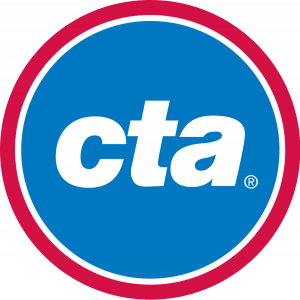
Whether you are planning to apply during the current application cycle or are beginning to prepare for a future year, determining what is important to you in a law school and assessing what individual law schools can offer is an important step in your admissions process.
What to look for…
Deciding what to look for in a potential law school requires an assessment of your goals and priorities. As you consider your choice in law school you should include the following in your list of potential goals:
- Academic Opportunities
- Geographic Location Present & Future
- Affordability
- Career Goals
- School Size
Learn more about each of these goals and more at our prior blog post “Where to Apply”.
Getting started…
In setting your ultimate goals for your law admission process, the first step is often getting familiar with law schools to more fully understand what legal education has to offer. Every school has its own unique strengths and characteristics. Learning about different law schools is an excellent place to start in developing a list of goals that are important to you. Here are a list of resources and tips for getting started in your research.
Connect at a law fair!
Law fairs can provide one of the best ways to begin your exploration and research into law schools. It provides you the opportunity to gather information and insights from a large number of diverse schools, from across the country, in a short amount of time!
There are many options to attend law fairs each year in both in-person and virtual format! UIUC students can attend the Illinois Law Fair on September 28 at the Illini Union!
Not on campus? Not a problem! LSAC hosts both in-person and virtual forums each year at locations around the country. Check out the list of 2022-2023 dates online.
LSAC Official Guide to ABA-Approved Law Schools:
The LSAC Guide to ABA-Approved Law Schools is a wonderful database that allows you to search for law schools based on a number of criteria including location, your GPA/LSAT, and program. LSAC also offers a few specifically targeted resources to help students in their research:
- LSAC LGBTQ+ Guide to Law Schools:
- LSAC Racially/Ethnically Diverse Applicants Resource Page
- LSAC Applicants with Disabilities Resource Page
ABA 509 Disclosure Reports
Law schools must report data to the American Bar Association (ABA) each year which is then compiled into what are known as “509 Reports”. This data includes information regarding career placement, bar passage, admissions, scholarship and financial aid, academics, and student body profile information. These are one of the best resources for reaching schools. We encourage you to look up 509 Reports on any school you are interested in. Please note profile data for students beginning in Fall 2022 will be reported by October 5 and published publicly in the following weeks.
Access Lex – Xplore JD
Access Lex provides many resources to assist aspiring law students, including Xplore JD! Xplore JD is a free, online database that allows users to search for potential law schools based on five primary factors/goals including Location, Cost, Academic and Student Experience, Diversity, and Outcomes. Your answers to questions on these five criteria will be assessed and you will be matched with potential law schools that match your goals! This is an excellent tool to discover new law schools and assess how suited certain schools are to your goals and needs.
Law School Transparency
Law School Transparency (LST) has long compiled and made available important data and information on law schools to assist law school applicants in navigating the law admissions process. Recently acquired by LSAC, LST continues to provide extremely helpful data and information to applicants. Through LST you can build a customized list of schools by providing details and information about your goals. Your personal report will provide suggestions on law schools and also allow you to do quick comparisons amongst your top choice institutions on data related to cost, job placement, bar passage and more! Please note you will be required to log-in to your LSAC account to utilize the personal search options.
Ranking Lists
Choosing a school based on ranking alone can result in a very unbalanced decision that leaves you attending a school that ultimately does not best support your individual needs and goals. However, organizations that provide such rankings do gather a large amount of information about individual schools which can be researched quickly including specialized programs, average starting salaries, and average debt for graduates. Ranking lists can be a good way to get a broad perspective on schools or quickly find more specific details about programs. Use these resources with caution and be sure to understanding the basis for the conclusions that ranking lists make – researching the details further to make your own conclusions. Always keep in mind that many schools can support your success amongst the nearly 200 ABA-approved schools in the U.S. and ranking should not lead your analysis of whether a law school is a good fit for you!
TIP: Research a few schools you know nothing about, never heard of, or that are located in a completely different region than you think you would like to be. Even if you may not ultimately apply to these school, challenging yourself to explore something different is an excellent way to discover different options and possibilities that law schools may offer!













